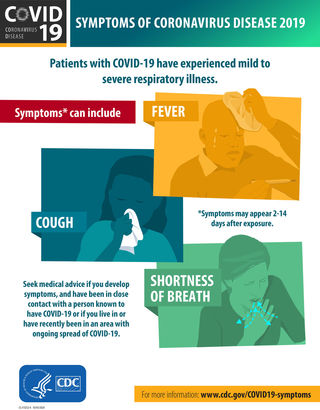Fear
The Coronavirus Crisis Is Fueled by Stress and Fear
High levels of stress and fear before the crisis began created a perfect storm.
Posted March 7, 2020 Reviewed by Ekua Hagan

Much has been written and discussed about thoughtful public health approaches to the current coronavirus crisis. Simple precautionary steps, such as frequent hand washing and staying home from school or work if sick, have been highlighted. The best available data from the CDC, WHO, and other medical groups suggest that while this new virus is more deadly than the typical flu, it is much less deadly than recent outbreaks regarding the swine flu, bird flu, SARS, Ebola, and so forth.
Certainly, these illnesses cause havoc for many, with ripple effects regarding just about every institution, organization, and industry in impacted areas. And vulnerable populations, such as the elderly and those with significant health problems to begin with, are apparently most vulnerable to the illness. Yet, this time around, the level of panic seems much worse than in the past, and much of it seems centered around psychological, rather than rational, reactions.
Why?
There is a confluence of factors that make this particular health scare especially challenging for the public. First, stress and fear, in general, are at very high levels. The American Psychological Association conducts a comprehensive Stress in America survey each year, and stress levels have never been higher.
People are also very concerned and fearful about a variety of societal issues, such as rapid climate change, frequent deadly gun violence, increasingly harsh and polarizing political discourse, increased economic disparity, and so forth. Additionally, major media outlets, as well as social media, in their various efforts for attention, clicks, and revenue, tend to shout loudly and report news in a hysterical manner. As the old journalism saying goes, “if it bleeds, it leads,” meaning that highly visual, graphic, and provocative news is highlighted, and it sells.
Thus, since the level of fear, anxiety, and stress had been so high before the outbreak of the coronavirus, when the virus started, it was a bit like putting a match to kerosene fumes. It ignited! Additionally, companies, educational institutions, and others are being especially cautious and trying to do what others do in an effort to perhaps avoid blame and act prudently.
However, as this current crisis unfolds and develops, having a heightened level of stress and fear can only make adaptation and management of the crisis worse. After all, why exactly are people buying so much toilet paper from the big box stores or avoiding Corona beer? It simply makes no sense to do so.
Hysteria in a population can emerge and be fueled easily when fear is in the air to begin with. There are many examples of this phenomenon. Perhaps we all need to take a long and deep healing breath, remind ourselves that the fear and stress which so many people are experiencing put us at risk for hysterical and panicked reactions rather than rational, evidence-based ones, and be sure to follow sensible public health officials’ advice about washing hands frequently and staying home if sick. The current crisis seems to be as much of a psychological one as it is a medical one.
So, what do you think?
Copyright 2020, Thomas G. Plante, Ph.D., ABPP


